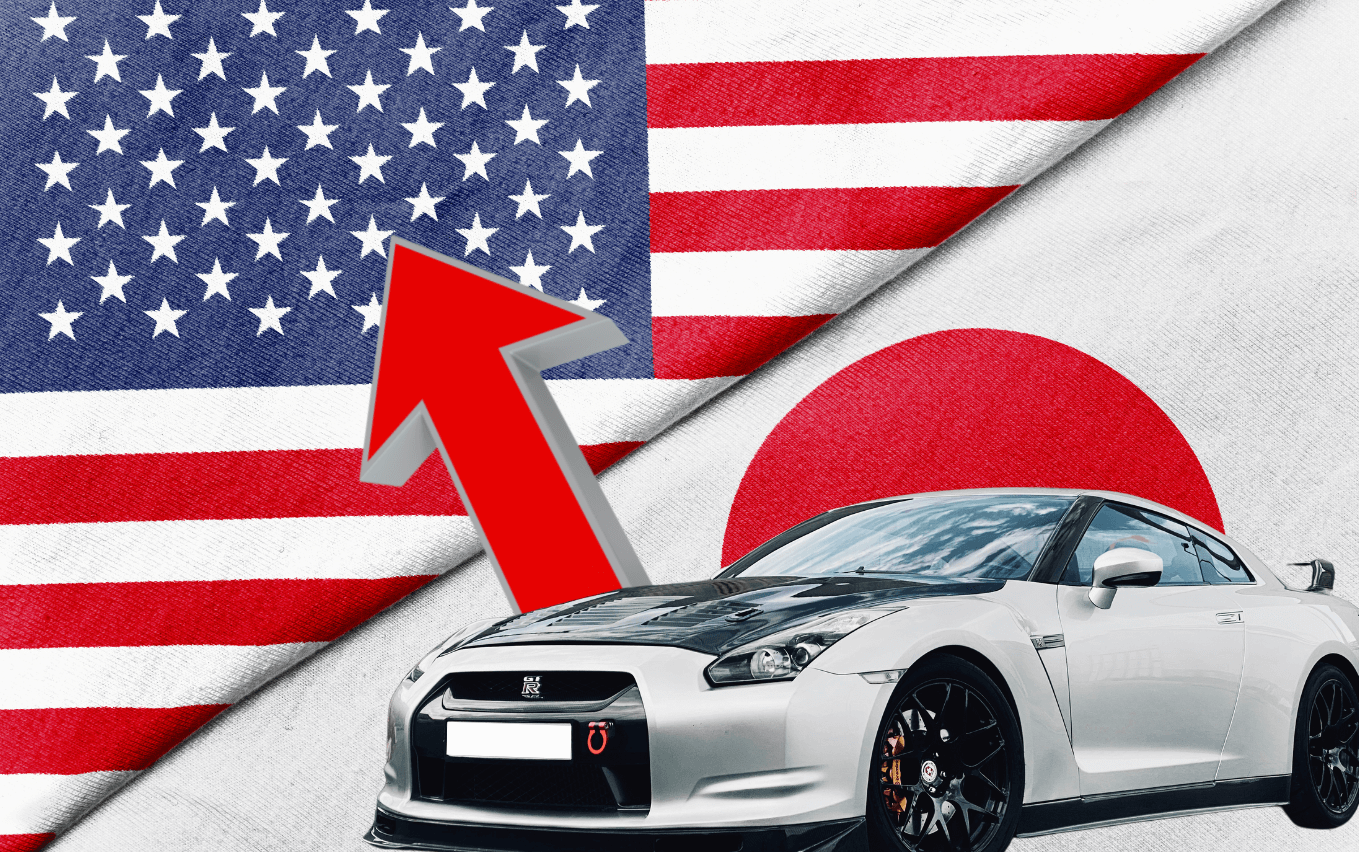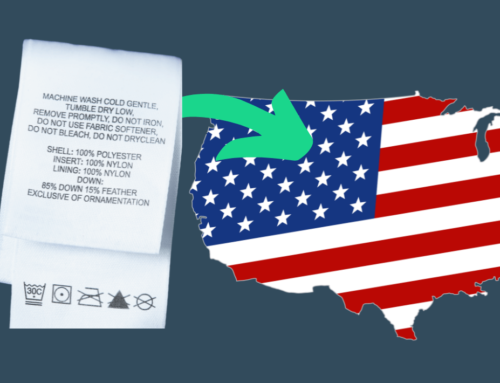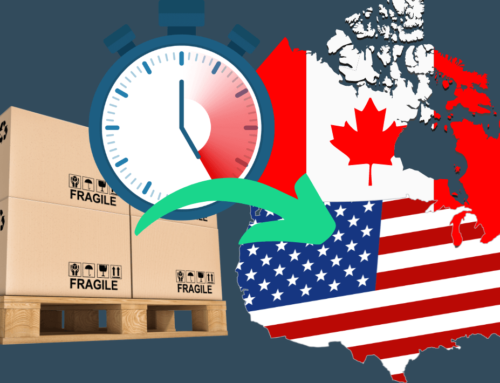Importing a Car from Japan to the United States

Breeze Customs Blog
The United States has a large and active car import market. This is partly due to the fact that many people are excited about cars from abroad, and there are many incentives for them to buy these cars. Japanese cars, in particular, have always been a dream for American car owners looking for quality, safety, and reliability.
But to import cars from Japan to the United States is a big challenge. The process itself can be quite complicated and time-consuming, especially if you don’t know what you’re doing. So, we put together this article to cover everything you need to know about how to import cars from Japan to the United States, including the benefits, the steps you need to take, and the expected costs. Read on to find out more.
The benefits of importing a Japanese car
If you want to import cars from Japan, there are a few things that you should know first. Japan has some of the strictest safety regulations in the world, and most vehicles manufactured there either meet or exceed the standards that apply in the United States. While this might be helpful in the import process, other factors make importing a car from Japan attractive, including:
1. Japanese cars are cheaper. The cost of a car in Japan can be cheaper than that of an American-made car, so even with shipping costs, you can save thousands of dollars.
2. Japanese cars are built to last longer and hold value better than American-made ones.
3. Japanese cars are more fuel efficient than their American counterparts and often have lower emissions standards.
4. Japanese cars are often equipped with features that are only found on luxury vehicles here in the U.S., such as heated seats, navigation systems, and power windows.
5. Japanese cars tend to be smaller than American models, making them easier to handle on narrow streets or crowded urban settings where parking spaces are often limited by size or location (such as underground garages).
6. It’s possible to find rare and collectible car models that might not be available in the U.S. or anywhere else in the world.
Can Japanese cars be imported into the U.S.?
Yes, Japanese cars can be imported into the U.S., provided that they meet certain requirements. As with all other car imports, eligibility for Japanese imported cars is based on whether your car conforms with the rules and regulations set forth by the Department of Transportation (DOT) and given that it does not violate emissions regulations set by the U.S. Environmental Protection Agency (EPA). This will ensure it can pass through customs with no problem.
In many cases, the vehicle you wish to import may be nonconforming. The National Highway Traffic Safety Administration (NHTSA) defines a nonconforming vehicle as “a vehicle that does not meet safety standards set by the Federal Motor Vehicle Safety Standards (FMVSS) (as per the Motor Vehicle Safety Act) or that has been altered from its original design.” The definition also refers to vehicles not built to the U.S. Environmental Protection Agency (EPA) standards.
Nonconforming cars can be imported into the United States by certification or exemption.
- Certification
A nonconforming car can be imported if it is modified, tested, and certified by an Independent Commercial Importer (ICI).
- Exemption
The EPA and CBSA allow for the temporary importation of nonconforming vehicles – with EPA’s pre-approval – if they are imported for the following purposes:
– Testing
– Display
– Repair or alteration
– Non-residents
– Competition/Racing
The vehicle must be imported under a U.S. Customs and Border Protection (CBP) bond if it qualifies for EPA exemption.
How difficult is it to import a car from Japan?
Importing a car from Japan is pretty straightforward but can be overwhelming and confusing. We’ve seen many people ask how hard it is to import a car from Japan and what they need to do in order to do so.
The answer varies depending on your situation and what type of vehicle you’re importing. Still, one thing is clear: it’s best to work with an experienced customs broker when importing a car. That’s because they can help you through the process of filing your documents and customs clearance. This way, you’ll have someone on your side who understands the laws and regulations surrounding importing vehicles and can guide you through them.
What are the steps to import a car from Japan?
1. Determine eligibility
The first step in importing a car from Japan is finding out whether your vehicle qualifies for importation under U.S. regulations (both federal and state).
The United States has a very strict set of rules and regulations regarding the import of motor vehicles. For a vehicle to be able to enter the country, it must meet all of the safety standards set by the NHTSA. When importing a car from Japan, you must ensure that it meets these safety standards before shipping it to America.
Moreover, the Environmental Protection Agency (EPA) determines whether or not an imported vehicle meets an acceptable level of emissions control for use on U.S. roads (known as “conformity” requirements).
If you are importing a new car, it must meet all applicable federal standards. If it was manufactured before the year your state’s emissions standards and laws took effect, it might not be legal in your state unless the manufacturer can prove that it meets emissions standards.
If you are importing a used car, it must have an EPA certificate of conformity. All used cars manufactured after 1976 must have an EPA certificate of conformity if they have not been certified as having passed California emissions standards testing or were never registered in California during their first 10 years of life (or 2nd 10 years if they were originally sold in California).
2. Hire a customs broker
Once you’ve determined that your Japanese car is eligible for import into the United States, find a customs broker to help you with the import process. This is a CBP-certified individual or company that specializes in importing cars and other goods into the United States from foreign countries.
We recommend working with a customs broker because they know all the import rules and regulations, have experience dealing with importing vehicles and can help you navigate any potential pitfalls along the way. Once you find a broker that meets your criteria, read reviews and ask them questions before signing any contract.
3. Ship your car from Japan to the U.S.A.
Next, you will need to find a shipping company that can handle the transportation of your car from Japan to the U.S. If you do not have an established relationship with a Japanese auto shipper, consider using an agent or customs broker who has experience in the field. This will help ensure that your vehicle arrives in good condition and that there are no delays along the way.
You will also need to choose a port of entry. There are more than 300 land, air, and sea ports in the United States. It is best to choose a port of entry that handles vehicles and is closest to your destination state. This interactive port of entry map provides detailed information about each port and its requirements. We recommend speaking to a customs broker to simplify the process and help you choose the most suitable port of entry.
4. Prepare your documentation
Now that you’ve determined your shipping method and port of entry, you’ll need to prepare your import documentation. The paperwork required to import cars from Japan to the United States is as follows:
- A U.S. Customs Proforma Invoice
- The carrier’s Bill of Lading (BoL)
- A Bill of Sale showing VIN
- Foreign Registration
- An EPA form 3520-1
- A DOT form HS-7
- Your Importer Security Filing (ISF)
- A Letter of Recall and Conformity from the Manufacturer (if applicable)
You can either file these documents yourself or let your customs broker submit them on your behalf.
5. Pay duties and fees
Imported cars in the United States are subject to customs duty. The amount of duty you will need to pay depends on the value of your car. All foreign and Japanese vehicles are dutiable at the following rates:
- 5% for cars
- 25% for trucks
- Either free or 2.4% for motorcycles
6. Obtain insurance for your vehicle
You will need to purchase insurance for your imported car. The insurance cost varies based on the age and make of your car, where you live, how safe you drive and what kind of discounts you qualify for. In general, it will cost more to insure a Japanese car than an American one. Insurance companies usually consider the following factors when calculating premiums:
- The make and model of your car. Some cars are more expensive to insure than others. For example, a small car costs less than a large SUV.
- Your driving records. Expect to pay more for insurance if you’ve had multiple accidents or speeding tickets.
- Where you live. Some states have higher rates than others due to traffic congestion, the cost of living in the area, and other factors.
You’ll also need insurance on your vehicle while it’s being shipped from Japan to the U.S. Your customs broker can help arrange this in advance as well. Otherwise, you may have trouble getting coverage after arriving home with your newly purchased car.
7. Register your vehicle
Once you’ve submitted your import documentation and passed an inspection, you’re ready to register your vehicle with your state’s DMV and acquire license plates and permits.
For registration purposes, your responsibility as an importer is to establish that the imported vehicle conforms to import rules and regulations. You can do so by contacting the vehicle’s manufacturer and asking for a certificate of compliance with U.S. standards. Most manufacturers are already aware of the regulations and will issue a certificate of conformity when requested. You will need to have the Vehicle Identification Number (VIN) on hand when speaking to the manufacturer since vehicles and their attributes are tracked with this number.
When U.S. Customs verifies that your vehicle conforms with EPA and DOT requirements, an informal entry (Customs Form 368) must be completed and submitted to your state’s Department of Motor Vehicles (DMV) for registration. The process of acquiring plates and permits may be different from state to state, but in general, you will need to:
- Apply for a permanent vehicle registration
- Provide proof of insurance for your vehicle
- Pay any applicable taxes and fees associated with registering a new vehicle (these vary by state)
- Obtain license plates, which may be purchased from your local DMV location
- Obtain any necessary permits, such as a license plate sticker or emissions test certificate
How much does it cost to import a car from Japan?
The process of importing a vehicle into the United States is not as expensive as you might think, but it’s not exactly cheap either. There are several costs to consider when importing a vehicle into the U.S., including:
- Import Duties: Importing a car from Japan to the United States means you have to pay duties and fees. The amount depends on the type of vehicle, its value, and its age. The import duty for Japanese-made cars is 2.5%
- Customs Bond: A customs entry bond is required for every imported vehicle. You can choose to obtain a Single-Entry Bond (for one-time imports) or a Continuous Bond (for multiple imports within 12 months).
- DOT Bond (for nonconforming vehicles): If your vehicle does not have a DOT certification label, it must be imported as a nonconforming vehicle, and you must then register with a DOT-Registered Importer (RI) and post a DOT bond. The value of the bond must be 1.5 times the vehicle’s dutiable value.
- Gas-Guzzler Tax: Certain imported automobiles may be subject to the Gas-Guzzler Tax. The amount of the tax is based on a combined fuel-economy rating assigned by the EPA for gas-guzzler tax purposes. The higher the fuel economy, the lower the tax. No tax is imposed on vehicles with a combined fuel-economy rating of at least 22.5 miles per gallon.
- Insurance: Once you import your vehicle, you will want to purchase an insurance policy because, to drive in most states legally, you’ll need to meet minimum vehicle insurance requirements set by the state. If you’re shipping your vehicle from abroad, it’s best to have an insurance policy covering the shipping process.
- Brokerage fees: If you work with a customs broker, be prepared to pay a small fee for their services. Most car importers prefer to work with a customs broker to streamline the importation process.
- Shipping fees: Japanese cars are usually imported by ocean freight, and the shipping cost depends on the size of your vehicle and the carrier you choose. If you have an auto broker or shipping company handle the shipping process for you, they will be able to give you an estimate on shipping costs before making any commitments with them. If you work with a customs broker, they can help you find the perfect shipping partner.
- Licensing and registration: You may also have other expenses related to the licensing and registration of your vehicle when it arrives in the U.S. This usually depends on the state where you will be registering your car.
How Breeze Customs can help you import a car from Japan
At Breeze Customs, we’ve helped hundreds of importers bring their vehicles into the United States without hassle. Starting with the process of checking your vehicle’s admissibility and ending with customs clearance, we’ll take all the work off your shoulders. Book a meeting with one of our Breeze Customs Concierges and we’ll take it from there.




